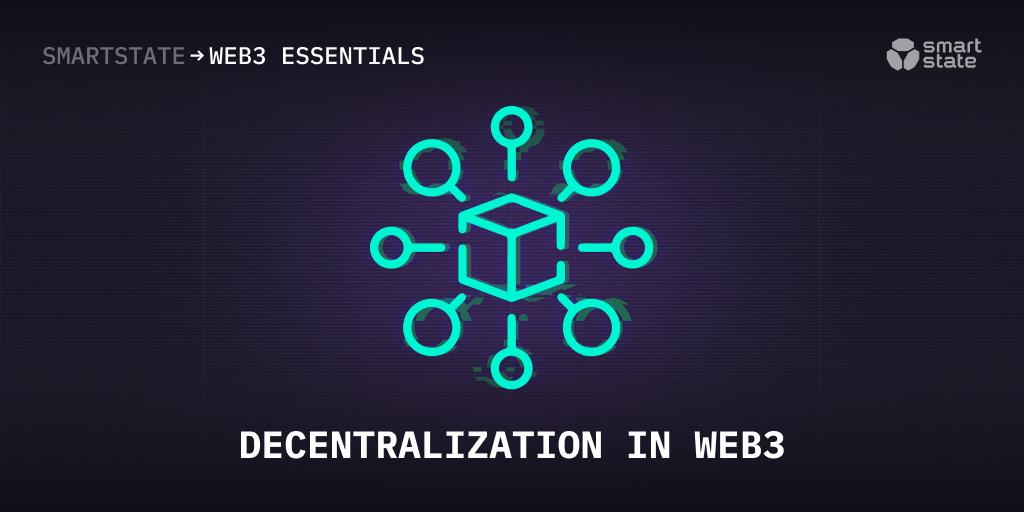Importance of decentralization in Web3. Centralization vs Decentralization. Comparison.
Centralization and decentralization are two antipodes, which are, however, both popular among the users and the developers in the web3 environment. They are not usually adopted exclusively, both have their strong and weak points and, in their way, both may be vulnerable to possible intrusion or other issues. What is the difference between centralized and decentralized systems and why users and developers make choices in favor of this or that type?
Centralization
Centralization and centralized systems are those where the entire management, decision making and regulations are concentrated in certain hands of a third person or a party, which therefore has the upper hand in whatever happens with the system. For example, centralized payment systems are controlled by their owners and all transactions are under their rule and control. It has its pros and cons.
Pros:
- Efficient and simple communication chain. When the top manager or the owner is known and the hierarchy is strict, everyone knows whom to report to and who is responsible for what. It simplifies the communication process. It also makes the communication process and the structure more transparent, while the ‘top-down’ direction provides straightforward implementation of the owner’s objectives and visions.
- Simpler decision-making. Decisions in such systems are usually made by a select few(the owners or managers) and then relayed to the lower levels for implementation. No additional funds or people are involved, as the crucial decisions are made at the top level. It also may increase productivity and implementation speed due to cutting down on the on-route stages.
Cons:
- Bureaucracy and remote control. This may be called the ‘key disadvantage’ of all centralized systems and organizations. Decision making and decision implementation, when concentrated in different hands, produces bureaucracy and kills the initiative. On the other hand, users have to entrust their data, assets and other stuff to a third party without the ability to change anything (lacking decision-making and equal participation in the process).
- Delays. The time between the request and the answer or decision can be quite long, as the former have to reach those at power, and it takes time for them to analyze and make a decision and then pass it back. These delays tend to increase along with the number and complexion of issues to be resolved.
- Participants’ dissatisfaction. People are more willing to participate in projects and communities where their initiative and words are valued and their decisions can produce an effect on the final decision and the working process. In centralized systems and organizations, where power is concentrated in a few pairs of hands, this is unlikely.
- Single point exploit risks. With a centralized solution based on its very structure the risk of exploiting the system from a single point increases, which is a big disadvantage in terms of security.
Decentralization
Decentralization, unlike centralization, is when participants have equal rights to make choices. They make decisions together and share the benefits and responsibilities. It has no vertical hierarchy, the communication is open and free, the decision making is faster and the structure adapts quicker and easier to the changing environment. Decentralized system or organization is based on trust in each other, confidence and common agreement based on the good will and respect for all participants for one another.
Pros:
- Quick decision-making. Bureaucracy is minimized, the decision-makers are, at the same time, decision-implementers, which cuts the long way short. Work coordination is easier and activities can be put on the track.
- Participants' satisfaction. Communication is open, transparent and free, while each participant may take part in the decision-making process. All the participants share both responsibilities and the rewards.
- Handling emergency situations. Decentralized systems adapt to and evolve quicker and easier in the changing environment. They are unlikely to break down or stagnate due to external factors (such as political changes in the country, etc.).
- No third party and ‘above’ control. The personal information and other ‘belongings’ are less vulnerable to uncontrolled exploitation of the top-level.
Cons:
- Duplication efforts. It can be considered both a benefit and a burden. In some ways when the participants do the same work it makes the process go quicker and more productively, but on the other hand, efforts and time may be just as easily wasted on doing unnecessary double work.
- Communication problems. Due to considerable autonomy, a lack of communication or access to important data can sometimes happen. In this situation the rule ‘for one that is missing is no spoiling a wedding’ does not work. Also each participant has their ax to grind and it may lead to long arguments or even incongruity in operations.
Conclusion
The difference between centralization and decentralization and which is better is one of the most popular topics to discuss and a lot of lances were broken over them. It may be easier to live delegating all the responsibilities to a third party and entrusting your funds and data to someone powerful. On the other hand, it deprives the participants of decision-making, slows down communication and makes it ‘mixty-maxty’ and shadowy, while also making it vulnerable to dangers coming from the outer world. In the web3 environment every participant needs to make decisions, having equal rights and the ability to take part in the process. Certainly, decentralization is based on confidence and the good will to make and implement decisions together in favor of the whole community.

